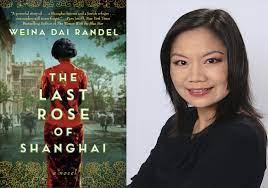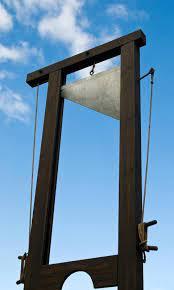Shanghai, 1940. The Japanese have ravaged through much of China; they’re in Shanghai, but don’t (yet) control its international settlement. Wherein a top nightclub is owned and operated by Aiyi — a 20-year-old girl — of course impossibly beautiful too.
Really??

This is Weina Dai Randel’s 2021 novel, The Last Rose of Shanghai.
Aiyi, we learn, is a daughter of one of China’s richest and most powerful families. They were, at least, until the Japs arrived, confiscating most of their assets. (We’re not supposed to say “Japs,” but in this context that’s being if anything gentle.)
Somehow Aiyi scraped together the financing to buy the club. For a teenaged girl doing that, I suspended disbelief. Not for the first time in this tumultuous melodrama.

Comes now Ernest Reismann, a 19-year-old Jewish refugee from Berlin. (Should be “Ernst?” But never mind.) Also impossibly handsome; arriving in Shanghai penniless. Desperately seeking a job, any job, without success; Shanghai is awash with refugees. But a sequence of chance encounters finally lands him a gig playing piano in Aiyi’s club. Turns out he’s fantastic — soon famous. Why hadn’t he looked for a pianist job in the first place? Well, never mind.
Of course Ernest and Aiyi fall in love. But she’s engaged to her cousin Cheng, a long-arranged family match. She doesn’t exactly hate Cheng, who isn’t exactly hateful — but never mind.
Meantime, the Japs are an increasingly looming menace. Shanghai’s elites party on regardless. I’m saying to myself: Aiyi, blow off your stifling insufferable family, blow off Cheng, sell the club for what you can still get (a goodly sum, apparently) and skedaddle with Ernest.
Happily ever after? Would have been a different (less interesting) book. We do know Aiyi will survive and prosper; we actually first meet her in 1980 as a billionaire, in Shanghai. Albeit missing a foot.
But back to 1940 . . . now 1941 . . . things get darker. A monster Jap officer (wrongly) thinks Ernest shot a soldier and threatens to seize Aiyi’s club if she doesn’t turn him in. He’s now tinkling the keys in a different club (as if the Japs couldn’t find him there).
At last he asks her to flee with him to Hong Kong three days hence. And she agrees! But meantime the Japs return to her club and shoot it up. She barely escapes unhurt. The club is closed by Jap order. Get the frick outta there NOW, I’m saying.
But Aiyi tells herself her involvement with “the foreigner” is the source of all her troubles. She changes her mind about leaving with him.
Aiiiyiiii . . . .
This is not even halfway through the novel. I’m shaking my head trying to imagine the next half. Well, I’ve written enough spoilers already.

But the book does conform to Robinson’s Iron Law of Capital Punishment in fiction and other arts. Writers and artistes may hold right-thinking enlightened views opposing the death penalty. Yet something deep in the human psyche insists that sometimes justice demands the ultimate punishment. And when fictional villains cross a certain line of heinousness, capital punishment becomes mandatory. So too here, with that nasty Jap officer. Once he’d wantonly killed a second major character, I knew he wouldn’t get out of the novel alive.
Alas, his comeuppance was not especially gruesome — just shooting. Though the novel does note his face blown off.
